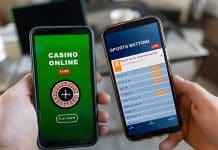For some, sports betting is a form of recreational activity, a way to make a game they’re watching even more exciting. For others, it’s an analytical pursuit for consistent profit. The change from casual gambler to sharp bettor involves both a mindset shift and a disciplined strategy.
Bankroll Management and Discipline
The most crucial element of any profitable sports betting strategy is bankroll management. Having a bankroll is setting aside money for betting and not for your own use. First, choose a bankroll you can handle and do not exceed.
Once established, the golden rule is to never bet more than a small, fixed percentage of that bankroll on any single wager. It is known as a unit size. For most bettors, a unit is 1% to 3% of their total bankroll. For example, if your bankroll is $1,000, your standard bet size would be between $10 and $30.
This approach is vital because it protects you from the inevitable losing streaks that all bettors face. A series of losses, known as variance, can quickly deplete a poorly managed bankroll. By using a consistent unit size, you can weather these storms and remain in the game for the long haul.
Its mental component is discipline. That involves following your bankroll management rules through emotional rollercoasters, and not trying to “chase losses” by stepping up your bet size after a losing bet. The quickest way to lose money is emotional betting, either because of frustration or overconfidence. A profitable bettor views each wager as an independent event and makes decisions based on data and analysis, rather than emotion.
The Key to Long-Term Success

Profitable sports betting is not about winning alone. It is about finding value. When sportsbook odds are higher than the event’s true probability of occurring, value exists. So basically, you are betting on a mispriced line.
To identify value, you must first understand that a sportsbook’s odds are a reflection of two things: the implied probability of an outcome and the bookmaker’s margin, or “vig.” The vig is the fee the sportsbook charges for taking a bet, ensuring they make a profit regardless of the outcome. So a profitable bettor must overcome this challenge by finding bets where their own calculated probability is higher than the sportsbook-implied probability.
For example, suppose you flip a coin, and the true probability of heads is 50%. The fair odds would be +100 in decimal format. Any sportsbook that offers odds of +110 for heads has a positive expected value because the payout exceeds what the true probability justifies. Making regular bets with a positive expected value (EV) will mathematically ensure that you win over a large number of bets.
That means becoming a skilled analyst, researching teams, player statistics, injuries, and other situational factors to make your own more accurate probability assessments. A specialty in one or two sports or leagues will give you a leg up on the general public.
Find the Best Odds to Maximize Returns
Even with a sound bankroll management strategy and the ability to spot value, you won’t get to the bottom line without line shopping. Just as a smart consumer compares prices before making a big purchase, so a smart bettor compares odds across multiple sportsbooks.
Odds vary widely between sportsbooks. Little things like betting on a team at -110 instead of -115 might seem insignificant on their own. However, over hundreds or thousands of wagers, these tiny differences add up to a hefty boost in your return on investment (ROI).
You need accounts with a few different sportsbooks to line up shop. Look at the odds offered by each book before placing a bet and go for the one offering the best terms. Using this simple, yet often ignored practice is one of the best ways to grow your long-term profits without changing your underlying betting strategy.
Advanced Strategies and Tools to Elevate Your Game
A bettor can explore more sophisticated strategies and tools. Examples include the Kelly Criterion, which determines the optimal bet size based on your perceived edge or the difference between your estimated probability and the implied probability of the odds.
A full Kelly stake is aggressive, but a fractional Kelly (betting half or a quarter of the recommended amount) is a safe bet for most professional bettors.
Another strategy involves arbitrage betting, where you place a bet on all possible outcomes of an event at different sportsbooks to guarantee a profit. It is possible only where two or more books significantly differ in odds. Even though a guaranteed profit sounds nice, arbitrage is rare and brief, and sportsbooks typically have accounts that cap or ban such transactions.
Thirdly, statistical models and data analysis software are increasingly used. All these tools can help bettors process enormous quantities of information and identify potential value bets faster than with manual research. Those tools are, however, only as good as the data they collect and the assumptions they make.
The intuition a human has about a game and its details remains an essential ingredient for any truly profitable strategy.










